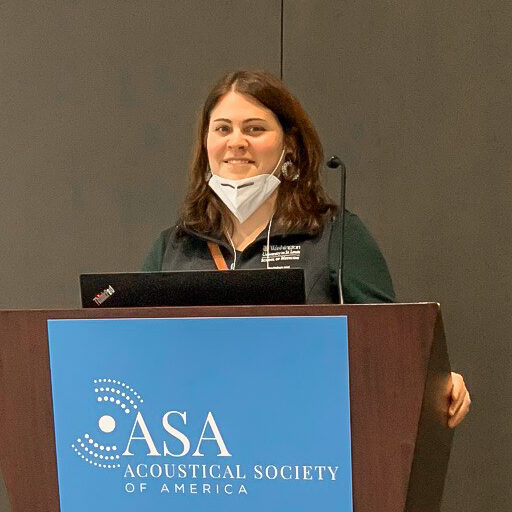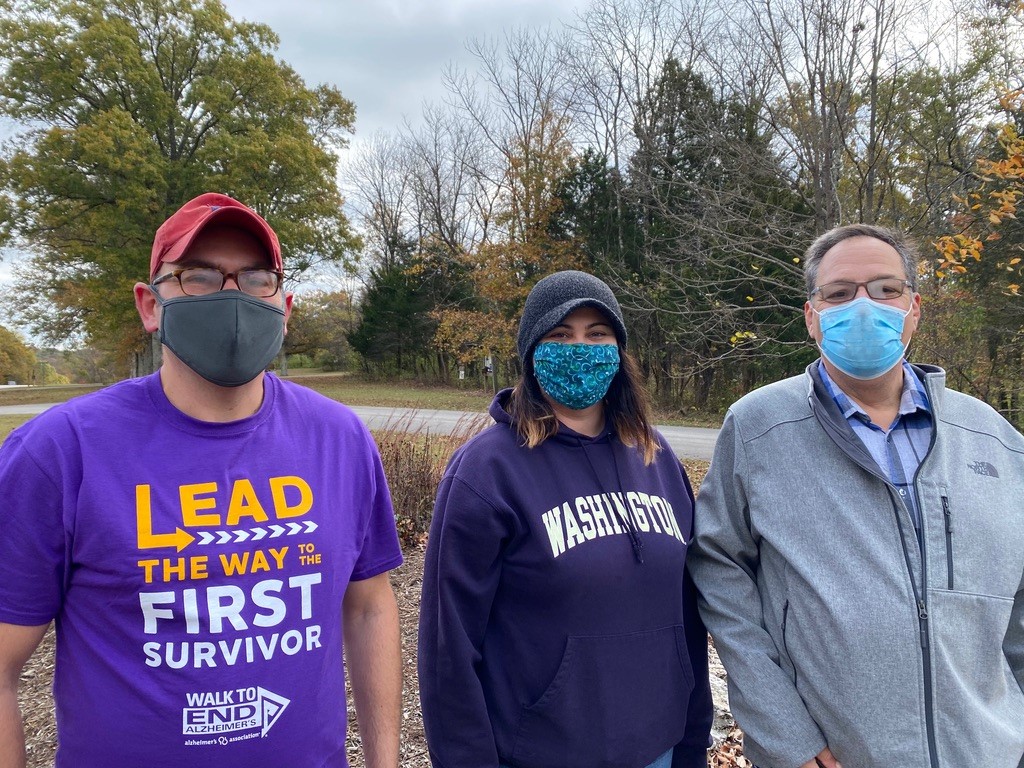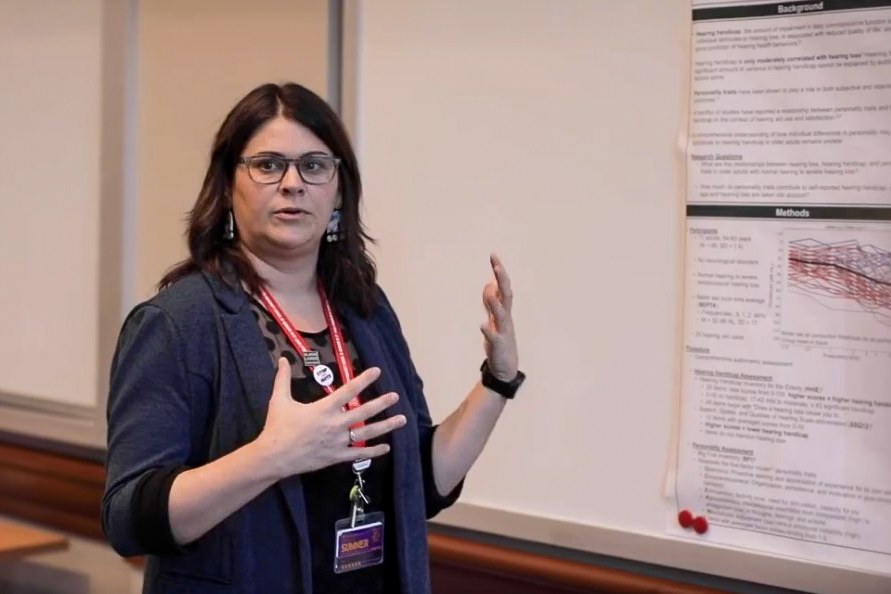As our aged population grows, so does the incidence of age-related hearing loss. In fact, about 50% of those over 70 years of age experience notable hearing loss and difficulties associated with that loss. Assistant Professor of Otolaryngology at Washington University Kate McClannahan, PhD, hopes to alleviate those difficulties by better understanding how personality, cognition, and hearing loss contribute to hearing handicap, a measure of how much hearing loss interferes with daily life.
According to McClannahan, treatment of hearing loss is effective at improving communication and overall quality of life, but only a small fraction of those who would benefit from hearing aids or cochlear implants seek them out. Changes in cognitive function also occur with age, which can progress to mild cognitive impairment or even dementia. Her work explores psychological variables, like cognitive ability and personality that may contribute to how much someone is affected by their hearing loss and influence their decisions to seek or not seek treatment.
“We want to understand how hearing loss and cognition interact to affect someone’s daily life.”
Kate McClannahan, PhD
The work is funded by a National Institutes of Health (NIH) Career Development award and an Alzheimer’s disease supplemental award (also NIH). The goals of the research are to:

- identify how personality and cognition contribute to individual differences in hearing handicap and hearing aid use
- determine the relationship between standard clinical measures of hearing and self-reported hearing handicap in adults with dementia
The tools McClannahan and her Auditory Wellness Lab use include audiometric evaluations, personality assessments, and measures of cognitive abilities such as working memory and mental processing speed. For adults with dementia, the data collection also includes their primary communication partner, usually a spouse or adult child.
A new technique the lab is planning to use is Ecological Momentary Assessment (EMA). This moves the science out into the real world by asking participants to complete short surveys on their smartphones multiple times per day, while they go about their normal activities.
“We think this platform may help us understand how well older adults are communicating in their typical listening situations and under what conditions communication breakdowns may occur,” says McClannahan.
Starting a lab during a global pandemic has been challenging, says McClannahan, who joined the Department of Otolaryngology last year. With the most recent spike in COVID case numbers, the lab is only collecting data online, via Zoom, or over the phone. However, they hope to restart in-person testing as soon as things calm down.

McClannahan finds that working with older adults is an absolute pleasure.
“This population is very eager to participate in our studies and help further our goal of better understanding hearing loss,” she says. “One of the challenges of working with older adults who are also experiencing dementia is that it is a highly protected research population. I have the great honor of working with the Knight Alzheimer Disease Research Center here at WashU, where this population is very well characterized and followed longitudinally.”
McClannahan’s mentors on the project are Mitchell Sommers, PhD, a cognitive psychologist in the Department of Psychological and Brain Sciences, and Nancy Tye-Murray, PhD, in the Department of Otolaryngology, both at Washington University. Other collaborators include Michael Strube, PhD, and Joshua Jackson, PhD (Department of Psychological and Brain Sciences); Jonathan Peelle, PhD; and Yi-Fang Chiu, PhD, at Saint Louis University.
The lab’s work on the reliability of hearing assessment measures in adults with dementia was published in JAMA Otolaryngology in May 2021 (https://jamanetwork.com/journals/jamaotolaryngology/fullarticle/2777094) and a project describing speech perception performance for people with and without dementia is also available (https://psyarxiv.com/pf4qc/).
